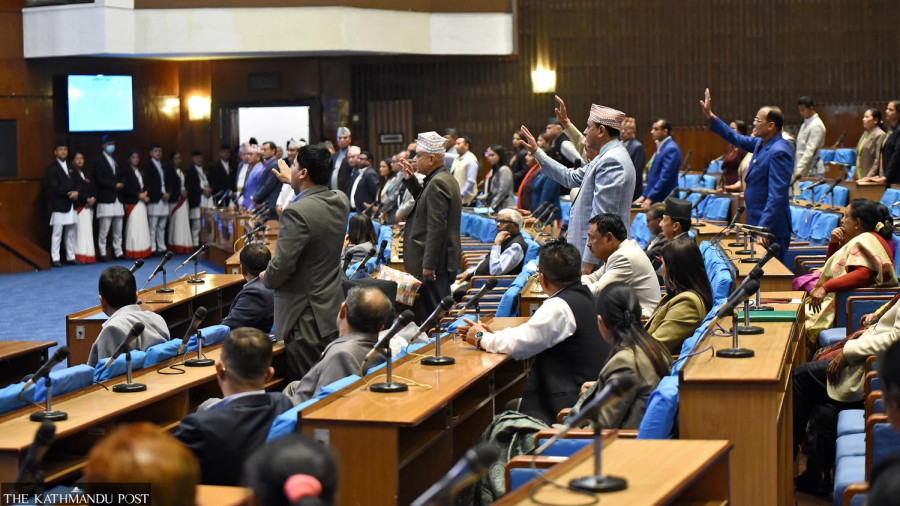Editorial
Egregious failure
Poor performance of Parliament’s winter session does not bode well for Nepali democracy.
The winter session, which is taken as a bills session, of the federal parliament has been prorogued on Tuesday after another lacklustre performance. It ended by leaving some crucial bills undecided. Only five bills to replace the ordinances plus five other bills were endorsed by the federal parliament in this session. However, it couldn’t endorse important ones like those related to federal civil service and school education that are necessary for the constitution’s full-fledged implementation.
With the formation of a government by two largest political parties, this coalition should, at a minimum, have smoothened the path for full-fledged implementation of the present constitution by swiftly endorsing necessary bills. This would have given a message that the ‘strong government’ is earnest about creating a progressive change: ending the legal void created a decade ago after the adoption of the federal system.
The coalition, which was taken as a dispensation with a thumping majority based on its numerical strength in the House of Representatives, couldn’t endorse even all of the six bills to replace the ordinances. The plan to replace the land-related ordinance through a replacement bill had to be halted as Prime Minister KP Sharma Oli couldn’t convince Upendra Yadav to do so.
The legislature also failed to finalise some important old bills which have for years been gathering dust at Singha Durbar. For instance, the two long-delayed bills related to civil aviation that propose splitting Nepal’s aviation authority into a regulatory and a service provider bodies is a key requirement for Nepal to be removed from the European Commission’s air safety list. The government couldn’t get these two bills through the parliament even as they have been stuck in executive and legislative procedures for over a decade and half. Even the international agencies have been curiously watching developments in this connection.
Legislature is one of the three vital state organs. But Parliament is the central part of the political system we have adopted for the past four decades. It is the House that elects the head of the government, thus making the council of ministers answerable to the legislature. The activities in the House become important both in terms of its substance as well as process. It is also the face of the system because people directly observe how it functions. They for instance can’t see how executive agencies and the judiciary function on a day-to-day basis with their own eyes. In democracy, the process is as important as the outcome.
But leaders and lawmakers are not mindful of this fact. Not only the parliament’s plenary, the thematic committees of the House have also become ineffective, even in comparison to their past performance. Some parliamentary committees such as the Public Accounts Committee undertook important studies and investigations and held ministers and top officials accountable for their wrongdoing. The same committees, however, have of late been pathetic in their performance.
The discussions in the committees, the deliberations that take place on the House floor and the bills that are ultimately passed send a strong message. This messaging is extremely important, particularly in politically volatile times like these when some forces want to ditch all post-2006 progressive changes. The longer it takes for this simple truth to dawn on our political class, the greater the risk for the democratic system and their main champions: the big political parties.




 21.12°C Kathmandu
21.12°C Kathmandu














